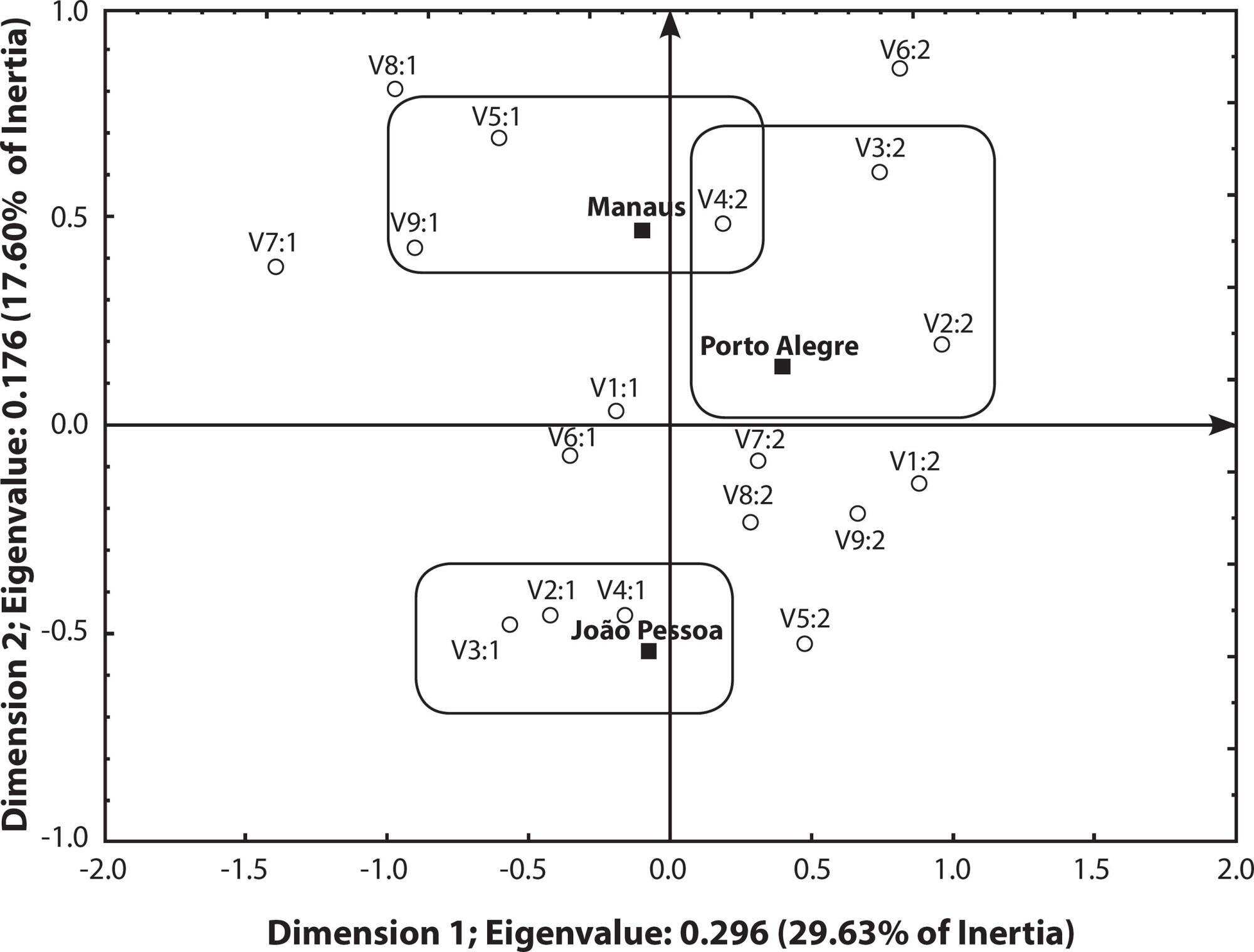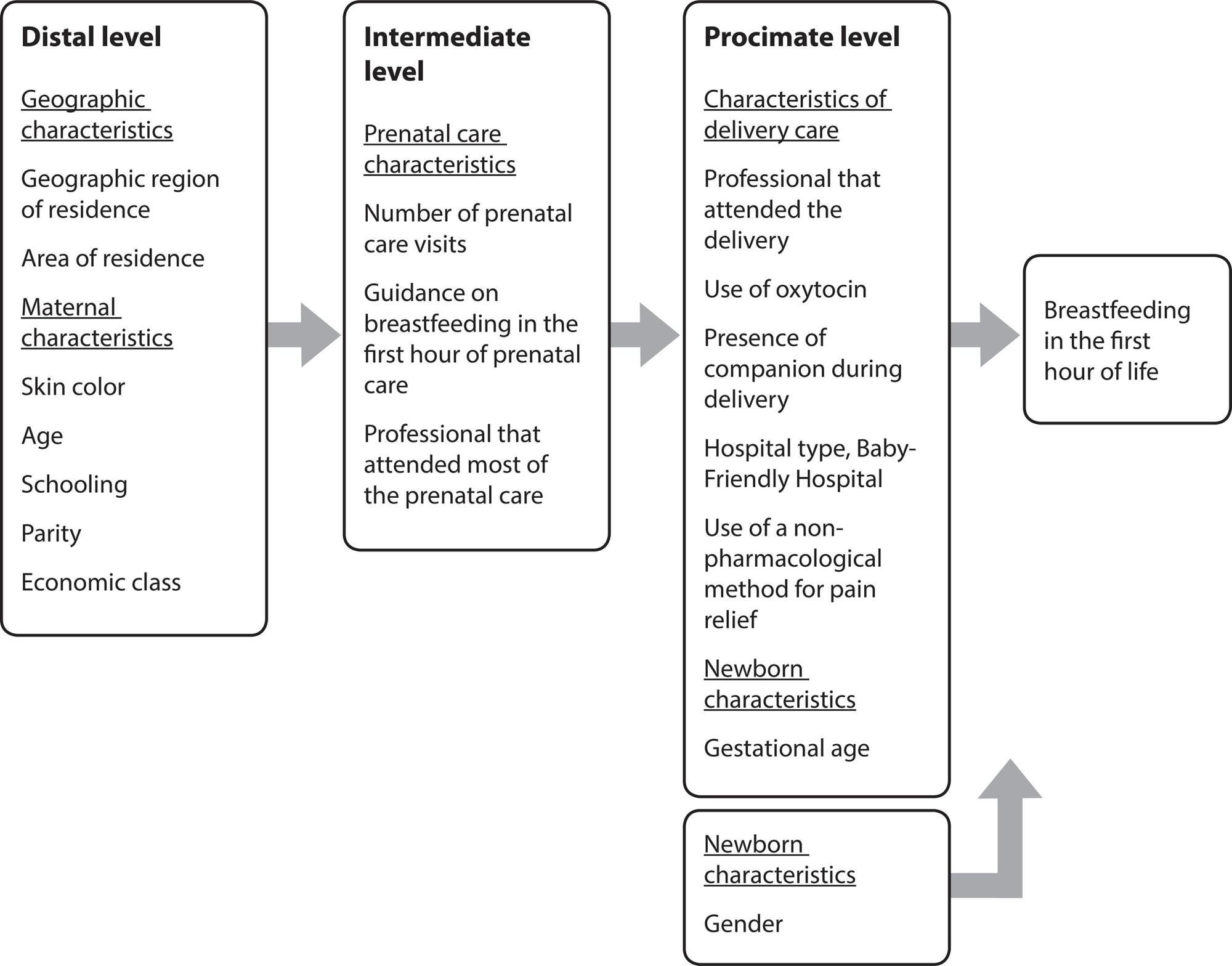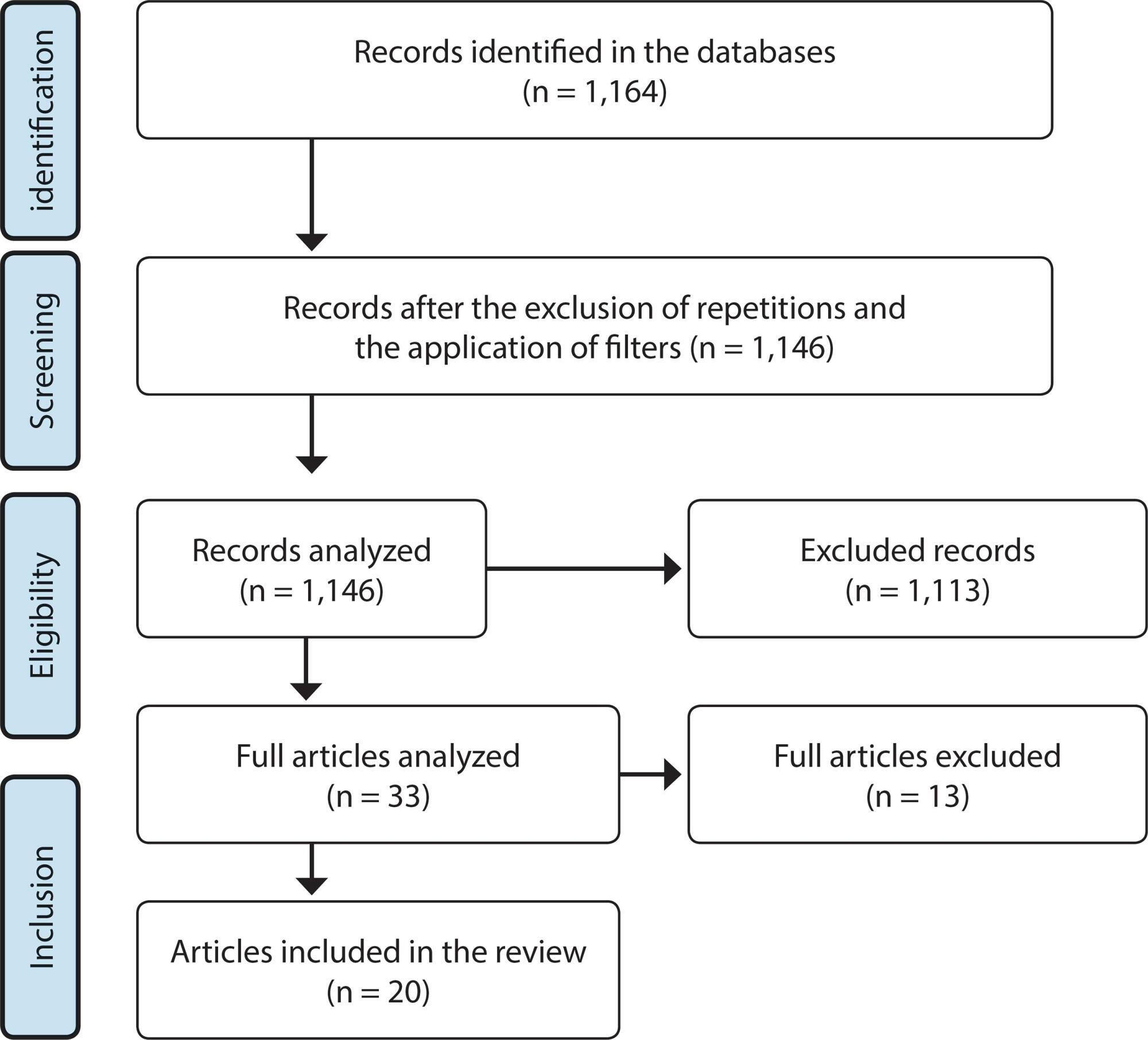-
02-06-2023
The challenge of university teaching in times of the COVID-19 pandemic
Revista Brasileira de Enfermagem. 2023;76(2):e760201
Abstract
The challenge of university teaching in times of the COVID-19 pandemic
Revista Brasileira de Enfermagem. 2023;76(2):e760201
DOI 10.1590/0034-7167.2023760201
Views0This planet’s history has been a long and sometimes tortuous one. To date, a total of five disappearances of life on Earth have been distinguished: the great oxidation; the Ordovician-Silurian extinction; the Devonian extinction; the Permian-Triassic extinction; the Triassic-Jurassic extinction; and the Cretaceous-Tertiary extinction. The causes? Very varied and diverse: anoxia phenomena in the marine […]See more -
EXPERIENCE REPORT02-06-2023
Surgical counting: design of implementation and maintenance of a standardized evidence-based procedure
Revista Brasileira de Enfermagem. 2023;76(1):e20220144
Abstract
EXPERIENCE REPORTSurgical counting: design of implementation and maintenance of a standardized evidence-based procedure
Revista Brasileira de Enfermagem. 2023;76(1):e20220144
DOI 10.1590/0034-7167-2022-0144
Views0See moreABSTRACT
Objectives:
to report the implementation and maintenance of an evidence-based Standard Operating Procedure for surgical counting performed at a teaching hospital.
Methods:
a report of a project to implement evidence for surgical counting, carried out at a university hospital in December 2017, and the subsequent cycles for better performance of the implemented organizational document and maintenance of better results until March 2022.
Results:
the report is divided into implementation project presentation and four other cycles after implementation, related to maintenance of improvements. It was possible to prepare a Standard Operating Procedure for Surgical Count, train the nursing team, carry out educational intervention for surgical teams.
Final Considerations:
there was an improvement in complying with the standardized procedure at the first moment and worsening in the period related to the pandemic. New efforts began again, including a self-instructive online course combined with first-time strategies.
-
REVIEW02-06-2023
Nursing care management concepts: scoping review
Revista Brasileira de Enfermagem. 2023;76(1):e20220020
Abstract
REVIEWNursing care management concepts: scoping review
Revista Brasileira de Enfermagem. 2023;76(1):e20220020
DOI 10.1590/0034-7167-2022-0020
Views0See moreABSTRACT
Objectives:
to clarify the concepts of Nursing Care Management and Nursing Care Administration in the scientific literature, highlighting approximations and distances between the terms.
Methods:
scoping review as per Joanna Briggs Institute protocol and preferred reporting items for Systematic Reviews and Meta-analysis extension for Scoping Reviews (PRISMA-ScR). The searches were performed in LILACS, CINAHL, MEDLINE, and Scopus databases.
Results:
the qualitative analysis, through content analysis, counted 49 studies published between 2007 and 2020. Hospital care was the most evident level of care. It was identified that nursing care management aims at the macropolitical performance of nurses and mobilizes skills essentially strategic-cognitive, while Nursing Care Administration aims at the micropolitical performance of nurses, requiring essentially strategic-administrative skills.
Final Considerations:
the study allowed us to propose the conceptualization of the terms and identify the approximations and distances between them.

-
ORIGINAL ARTICLE02-06-2023
Sexuality and its effects on older adults’ depressive symptoms and quality of life
Revista Brasileira de Enfermagem. 2023;76(1):e20210645
Abstract
ORIGINAL ARTICLESexuality and its effects on older adults’ depressive symptoms and quality of life
Revista Brasileira de Enfermagem. 2023;76(1):e20210645
DOI 10.1590/0034-7167-2021-0645
Views0See moreABSTRACT
Objectives:
to analyze the effects of sexuality on depressive symptoms and quality of life in older adults.
Methods:
a cross-sectional and analytical study, developed with 596 older adults, who completed four instruments for data collection. Data were analyzed using the Kruskal-Wallis test and Structural Equation Modeling, with a 95% Confidence Interval.
Results:
among the sexuality dimensions, only physical and social adversities exerted statistically significant effects on depressive symptoms (SC=-0.095; p=0.003), but with low magnitude. Moreover, all sexuality dimensions had statistically significant effects on quality of life, being of low magnitude for sexual act (SC=0.171; p=0.010) and for physical and social adversities (SC=0.228; p<0.001), and moderate magnitude for affective relationships (SC=0.474; p<0.001).
Conclusions:
effects of different magnitudes were observed between sexuality dimensions on participants’ depressive symptoms and quality of life.

-
ORIGINAL ARTICLE02-06-2023
Internal validity evidence of a knowledge questionnaire on alcohol use, abuse and dependence and associated questions
Revista Brasileira de Enfermagem. 2023;76(1):e20210377
Abstract
ORIGINAL ARTICLEInternal validity evidence of a knowledge questionnaire on alcohol use, abuse and dependence and associated questions
Revista Brasileira de Enfermagem. 2023;76(1):e20210377
DOI 10.1590/0034-7167-2021-0377
Views0See moreABSTRACT
Objectives:
to perform content validity and verify the psychometric properties of the adapted version of an alcohol knowledge questionnaire and associated questions.
Methods:
a methodological study, in which a committee of judges analyzed the questionnaire item representativeness, clarity and relevance. Item response theory was used to assess the instrument psychometric properties applied to a sample of 240 health professionals.
Results:
the questions were adjusted according to judges’ assessment, obtaining a satisfactory Content Validity Index (0.98). High discrimination ability and adequate difficulty levels were observed in 75% of multiple-choice questions and in 25% of statements.
Conclusions:
the instrument presented content validity with satisfactory indices. However, it is recommended that the questionnaire adapted in this study be used in different samples of health professionals from other parts of Brazil, in order to provide greater robustness to its reliability.

-
02-06-2023
COVID-19 Social Thermometer Project: transnational articulations to approach populations in situations of social vulnerability
Revista Brasileira de Enfermagem. 2023;76:e76suppl201
Abstract
COVID-19 Social Thermometer Project: transnational articulations to approach populations in situations of social vulnerability
Revista Brasileira de Enfermagem. 2023;76:e76suppl201
DOI 10.1590/0034-7167.202376suppl201
Views0COVID-19 is an infectious disease that has significantly impacted different contexts around the world, directly and/or indirectly, and on a larger scale in poor and/or developing countries(). We do not know for sure the cumulative effects of COVID-19 on populations (mental disorders, insomnia, anxiety, thrombosis, cognition deficit, memory problems, etc.) after exposure to infection by […]See more -
02-06-2023
Proyecto Termómetro Social COVID-19: articulaciones transnacionales para abordar poblaciones en situación de vulnerabilidad social
Revista Brasileira de Enfermagem. 2023;76:e76suppl201
Abstract
Proyecto Termómetro Social COVID-19: articulaciones transnacionales para abordar poblaciones en situación de vulnerabilidad social
Revista Brasileira de Enfermagem. 2023;76:e76suppl201
DOI 10.1590/0034-7167.202376suppl201es
Views0El COVID-19 es una enfermedad infecciosa que ha impactado significativamente diferentes contextos alrededor del mundo, directa y/o indirectamente, y en mayor escala en países pobres y/o en vías de desarrollo(). No sabemos con certeza los efectos acumulativos del COVID-19 en las poblaciones (trastornos mentales, insomnio, ansiedad, trombosis, déficit cognitivo, problemas de memoria, etc.) tras la […]See more -
EXPERIENCE REPORT02-03-2023
Quality management in the COVID-19 pandemic: nursing action plan
Revista Brasileira de Enfermagem. 2023;76:e20220272
Abstract
EXPERIENCE REPORTQuality management in the COVID-19 pandemic: nursing action plan
Revista Brasileira de Enfermagem. 2023;76:e20220272
DOI 10.1590/0034-7167-2022-0272
Views0See moreABSTRACT
Objectives:
to describe the implementation of a nursing action plan to face the pandemic of COVID 19 in a University Hospital in the state of Rio de Janeiro. Methods: this is an experience report, in which two management tools were used: the Ishikawa Diagram to identify problems and the 5W2H spreadsheet to outline the actions according to the situations presented.
Results:
four categories were listed in two groups: 1- Actions of the Nurse Manager in the Organization of Logistics, Infrastructure and Care: materials and environment; and 2- Nursing Human Resources Management and Continuing Education: method and human resources.
Final Considerations:
the plan developed showed the role of nursing management, with the search for best care practices, development of protocols, carrying out multi-professional training and management of supplies.

-
09-16-2019
Nursing practices centered on individuals with tuberculosis: an interface with democracy
Revista Brasileira de Enfermagem. 2019;72(5):1219-1225
Abstract
Nursing practices centered on individuals with tuberculosis: an interface with democracy
Revista Brasileira de Enfermagem. 2019;72(5):1219-1225
DOI 10.1590/0034-7167-2017-0380
Views0See moreABSTRACT
Objective:
To analyze whether user-centered nursing practices in TB DOT are being carried out and are contributing to democracy.
Method:
A cross-sectional, exploratory, descriptive study with 123 nurses in three capital cities with high incidence of TB (Manaus-AM, João Pessoa-PB, Porto Alegre-RS) in Brazil. Data were collected from January to June 2014. Descriptive and multiple correspondence analyzes were used.
Results:
It was identified that the most user-centered care actions had scores below 50%, considered unfavorable to the exercise of democracy. In the analysis of the general user-centered practice score per municipality, Manaus and João Pessoa presented unfavorable results, and the municipality of Porto Alegre was partially favorable.
Conclusion:
The three municipalities need to advance in the implementation of user-centered practices in DOT, because their health system still has difficulties and challenges to overcome.

-
ORIGINAL ARTICLE08-10-2020
Palliative care consultation team: symptom relief in first 48 hours of hospitalization
Revista Brasileira de Enfermagem. 2020;73(6):e20190391
Abstract
ORIGINAL ARTICLEPalliative care consultation team: symptom relief in first 48 hours of hospitalization
Revista Brasileira de Enfermagem. 2020;73(6):e20190391
DOI 10.1590/0034-7167-2019-0391
Views0See moreABSTRACT
Objective:
To compare the relief of symptoms provided by palliative care consultation team (PCCT) compared to the traditional care team (TC), in patients with advanced cancer in the first 48 hours of hospitalization.
Method:
Allocated to PCCT Group and TC Group, this study assessed 290 patients according to the Edmonton Symptom Assessment System (ESAS) within the first 48 hours of hospitalization. The main outcome was a minimum 2-point reduction in symptom intensity.
Results:
At 48 hours, the PCCT Group had a 2-point reduction in the mean differences (p <0.001) in pain, nausea, dyspnea, and depression; and TC Group, on nausea and sleep impairment (p <0.001). Multiple Logistic Regression found for the PCCT Group a greater chance of pain relief (OR 2.34; CI 1.01-5.43; p = 0.049).
Conclusion:
There was superiority of the PCCT Group for pain relief, dyspnea and depression. There is a need for more studies that broaden the understanding of team modalities.
-
ORIGINAL ARTICLE10-21-2019
Work overload and risk behaviors in motorcyclists
Revista Brasileira de Enfermagem. 2019;72(6):1479-1484
Abstract
ORIGINAL ARTICLEWork overload and risk behaviors in motorcyclists
Revista Brasileira de Enfermagem. 2019;72(6):1479-1484
DOI 10.1590/0034-7167-2018-0279
Views0See moreABSTRACT
Objective:
to analyze the association between work overload and risk behaviors adopted by motorcyclists.
Method:
a cross-sectional study of injured motorcycle drivers hospitalized at the Hospital da Restauração Governador Paulo Guerra in the city of Recife, PE, from May to September 2016. A questionnaire was applied containing sociodemographic variables related to work overload and risk behaviors adoption. Odds Ratio (OR) and 95% Confidence Interval were used to analyze the association between the variables.
Results:
there was a predominance of males (97.6%), mean age 31.44 years (SD = 9.50). There was an association of sleep/fatigue at the accident time with difficulties carrying out work tasks (OR = 3.7), feeling tired during work (OR = 4.6) and feeling under pressure to carry out work tasks (OR = 3.5).
Conclusion:
work overload was associated with risk behaviors adoption. It is believed that this fact can have an impact on the occurrence and severity of accidents.
-
ORIGINAL ARTICLE02-05-2021
Homeless people: health aspects and experiences with health services
Revista Brasileira de Enfermagem. 2021;74(1):e20190200
Abstract
ORIGINAL ARTICLEHomeless people: health aspects and experiences with health services
Revista Brasileira de Enfermagem. 2021;74(1):e20190200
DOI 10.1590/0034-7167-2019-0200
Views0See moreABSTRACT
Objectives:
to analyze the understanding of homeless people living in a city in the countryside of São Paulo about what health is and about their experiences in health services.
Methods:
a qualitative exploratory study developed through interviews with homeless people and a field diary. The data were organized by themes and the findings were compared to a collective health framework.
Results:
the explored themes were: “Being healthy for the homeless population”, “The search for health services” and “Being a user of health services from the perspective of homeless people”. We present the interviewees’ understanding of health and their experiences in healthcare services. Along this path, we outline aspects that show the network’s weaknesses, permeated by prejudices and discrimination.
Final Considerations:
this population has conceptions about health and needs that need to be singularly taken into consideration to facilitate access and care.
-
ORIGINAL ARTICLE02-17-2020
Professional who attended childbirth and breastfeeding in the first hour of life
Revista Brasileira de Enfermagem. 2020;73(2):e20180448
Abstract
ORIGINAL ARTICLEProfessional who attended childbirth and breastfeeding in the first hour of life
Revista Brasileira de Enfermagem. 2020;73(2):e20180448
DOI 10.1590/0034-7167-2018-0448
Views0See moreABSTRACT
Objectives:
To investigate the association between the professionals who attended vaginal delivery and breastfeeding in the first hour of life.
Methods:
This is a cross-sectional study with data from the Nascer no Brasil (Born in Brazil) survey, conducted in the 2011-2012 period. Data from 8,466 puerperae were analyzed using a logistic regression model with a hierarchical approach.
Results:
The proportion of mothers who breastfed at birth was higher in deliveries attended by nurses (70%). A nurse-assisted delivery was 64% more likely to breastfeed in the first hour of life. Other factors associated with the outcome: residing in the North; age less than 35 years; multiparity; prenatal guidance on breastfeeding in the first hour of life; birth at Baby-Friendly Hospital; companion at birth; and female newborn.
Conclusions:
Obstetrician nurse/nurse-assisted delivery was a significant independent factor associated with breastfeeding in the first hour of life, suggesting the importance of strengthening the role of the obstetrician nurse.

-
ORIGINAL ARTICLE02-17-2020
Predictive model of hospitalization for children and adolescents with chronic disease
Revista Brasileira de Enfermagem. 2020;73(2):e20180467
Abstract
ORIGINAL ARTICLEPredictive model of hospitalization for children and adolescents with chronic disease
Revista Brasileira de Enfermagem. 2020;73(2):e20180467
DOI 10.1590/0034-7167-2018-0467
Views0See moreABSTRACT
Objectives:
Describe a predictive model of hospitalization frequency for children and adolescents with chronic disease.
Methods:
A decision tree-based model was built using a database of 141 children and adolescents with chronic disease admitted to a federal public hospital; 18 variables were included and the frequency of hospitalization was defined as the outcome.
Results:
The decision tree obtained in this study could properly classify 80.85% of the participants. Model reading provided an understanding that situations of greater vulnerability such as unemployment, low income, and limited or lack of family involvement in care were predictors of a higher frequency of hospitalization.
Conclusions:
The model suggests that nursing professionals should adopt prevention actions for modifiable factors and authorities should make investments in health promotion for non-modifiable factors. It also enhances the debate about differentiated care to these patients.

-
ORIGINAL ARTICLE12-04-2020
Effectiveness of therapeutic groups in psychosocial care: analysis in the light of yalom’s therapeutic factors
Revista Brasileira de Enfermagem. 2020;73:e20200410
Abstract
ORIGINAL ARTICLEEffectiveness of therapeutic groups in psychosocial care: analysis in the light of yalom’s therapeutic factors
Revista Brasileira de Enfermagem. 2020;73:e20200410
DOI 10.1590/0034-7167-2020-0410
Views0See moreABSTRACT
Objective:
to describe professionals’ perceptions about the therapeutic effectiveness of group care.
Method:
a descriptive, exploratory, qualitative research of the type of intervention carried out with 30 professionals from Psychosocial Care Centers for Alcohol and Drugs in a municipality in center-westerns Brazil, from March to April 2019. Self-applicable instruments and round circles were used. The emerging data were submitted to content analysis.
Results:
professionals perceive the benefits of group practices and relate them to some therapeutic factors in the group. It is evident the little formal and systematized knowledge about the group process elements.
Final Considerations:
the therapeutic effectiveness of group processes is compromised due to absence of systematic records that allow to perceive the therapeutic progress of users, even though professionals perceive the emergence of therapeutic factors of the groups in the context of psychosocial care.
-
REVIEW03-30-2020
Care of the self in the daily living of nurses: an integrative review
Revista Brasileira de Enfermagem. 2020;73(2):e20180668
Abstract
REVIEWCare of the self in the daily living of nurses: an integrative review
Revista Brasileira de Enfermagem. 2020;73(2):e20180668
DOI 10.1590/0034-7167-2018-0668
Views0See moreABSTRACT
Objectives:
to identify if nurses care for themselves and describe such practices.
Methods:
this is an integrative review of the literature published between 2006 and 2018 and indexed in the Literatura Latino-Americana e do Caribe em Ciências da Saúde, Medical Literature Analysis and Retrieval System Online and Web of Science databases.
Results:
the sample totaled 20 articles, grouped by content similarity in the thematic categories “limits and possibilities for the care of the self”, “knowledge about practices on the care of the self” and “implications of care of the self in professional practice”.
Final considerations:
the knowledge about techniques on caring for the self allows nurses to develop themselves personally and professionally. We suggest to managers and administrators a redirection of the nursing practice that contemplates the strengthening of the nurse as the manager of care and leader of the team, as well as the inclusion of the concept of care of the self in the curricula of undergraduate and graduate nursing courses.

Search
Search in:
Nuvem de Tags
Adolescente (85) Atenção Primária à Saúde (239) COVID-19 (91) Criança (91) Cuidados de Enfermagem (269) Educação em Enfermagem (151) Educação em Saúde (139) Enfermagem (930) Enfermagem Pediátrica (86) Estudantes de Enfermagem (77) Estudos de Validação (131) Família (87) Idoso (208) Promoção da Saúde (99) Qualidade de Vida (104) Saúde do Trabalhador (86) Saúde Mental (145) Saúde Pública (82) Segurança do Paciente (150) Tecnologia Educacional (100)



